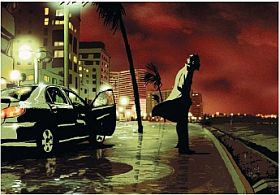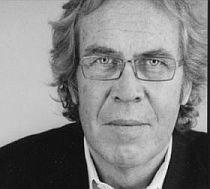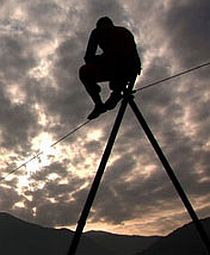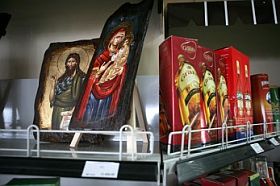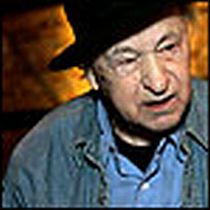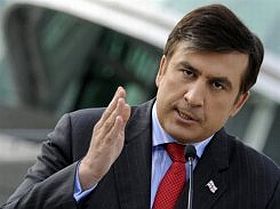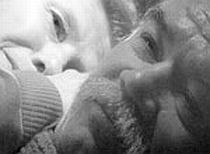


Barbara Cros, Lisbeth Lyngse: Kvinder i forandring
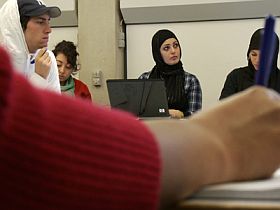
De er så omhyggelige med deres tøj, de tre kvinder, det handler om. De er så omhyggelige med det danske sprog, som de taler forbilledligt. De er så ordentlige og sympatiske og tydelige. Deres fortællinger er detaljerede, uden dramatik. Pletfri. De medvirker i en undervisningsfilm. Den har brug for forbilleder. Det kan jeg godt forstå. Det er ærlig snak.
Det handler om danske uddannelsers betydning for herboende kvinder fra fremmede kulturer. Det lyder bestemt ikke spændende. Men sådan en opgave kan reddes…
… af de medvirkende. Det sker her. Der er tre og de er søde, en kvinde med pakistansk baggrund, en med tyrkisk og en fra Malawi. Tre livshistorier (så langt de unge liv er kommet) fastholdt som cases på mere end nydelige filmbilleder. Man lytter gerne til dem. Og det skal man også. Fremstillingen er båret af deres fortællinger og af omvisninger til deres steder. Og så er der illustrerende reportagescener. Det er det.
Selvfølgelig er det ikke en film. Det er en dokumentation af tre gode kvinders frigørelse og selvstændiggørelse fastholdt på film. Der er ikke noget værk uden om de tre beretninger. Så efterhånden kniber det med dynamikken. Det går i stå efter 20 minutter, men så har konstruktionen alligevel lidt mere i posen: en kvinde agiterer sympatisk for fagforeningens nødvendighed, en demonstrerer sin daglige faglighed som kirurg og en endnu forankret i familien og familiens færdigret-butik, men hendes hensynsfulde distance til det hjemlige lader os forstå at selvstændig og sygeplejerske er og bliver hun.
Filmen er så passende til de velskabte tre yderst korrekt arbejde, dette er hvad, der bør menes. Jeg bliver næsten skræmt af al den renhed. Der er ingen tvivl, ingen kant heller. Der er intet at indvende. Uden måske netop dette.
Barbara Cros og Lisbeth Lyngse: Kvinder i forandring, Danmark 2009, 41 min. Manuskript: Barbara Cros, fotografi: Henrik Kloch og Lisbeth Lyngse, klip: Lisbeth Lyngse. Produceret af Manden Med Cameraet www.mandenmedcameraet.dk , dvd-salg: DBC www.dbc.dk Filmen kan ses på Filmstriben.dk via det lokale biblioteks hjemmeside.

